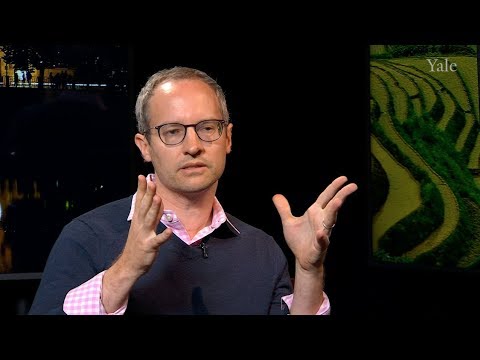
Robyn Creswell’s City of Beginnings: Poetic Modernism in Beirut, winner of the 2019 Gaddis Smith International Book Prize for best first book, was recently reviewed by Anna Della Subin at the New York Review of Books. Also, earlier this month, Creswell gave an interview for Yale’s YouTube:

The compellingly readable City of Beginnings a book about the seminal mid-twentieth-century poetry magazine Shi’r, and about poets like Adonis and Yusuf al-Khal. But, Creswell says in the interview, “it’s also a book about Lebanon during this period, and Beirut in particular, when Lebanon really occupies a slightly…anomalous position in the Arab intellectual landscape. It’s kind of the Golden Age for Beirut, when a lot of intellectuals from Egypt, Syria, Iraq are fleeing from an increasingly monolithic political culture in those places, and they come to Beirut — which is overflowing with magazines, and films from abroad, and has a very weak state, and thus a very weak censorship. And so they have a sort of intellectual freedom to elaborate a modernist movement.”
Why this book, the interviewer asks?
Certainly, Creswell notes, he had an aesthetic interest in these poetries, and it was something he felt he could work on for six or seven years without getting bored. But he adds that while the movement has been studied, it “has not been helpfully placed in international context. These were poets who really thought that one of the things that modernism really means is a kind of cosmopolitan or internationalist outlook on culture.”
What’s more, Creswell says, “I feel like this is a moment when comparatists are beginning to understand that comparative literature has not had a very wide remit, historically, in terms of the literature it looks at. It’s mostly been looking at European and American literatures, and I think by looking at a movement which is so cosmopolitan and internationalist, and placing it in that sort of context, can also help comparative literature studies deprovincialize itself.”
The interviewer asks what sorts of unexpected things turned up in Creswell’s research, and he talks about part of one of the book’s most exciting aspects, narratively, which was the CIA involvement in poetry of the time.
One of the places he did research, Creswell says, was in the archive of the Congress for Cultural Freedom, a front group for the CIA, which, “during the immediate post-war period, set up a whole umbrella of highbrow literary magazines, the most famous being Encounter in the UK… They also sponsored conferences all over the world, and this was their attempt to woo first European, but also Asian, African, Middle Eastern intellectuals to their way of thinking about cultural freedom.”
Among the intellectuals-of-interest were certainly those who wrote in Arabic.
“One of the conferences they set up, a rather infamous conference, at least if you’re interested in Arabic poetry, was held in Rome in 1961,” Creswell says. “It was a conference about modern Arabic literature and world literature…and all the poets that I studied were present at this conference, which was hosted by Stephen Spender, the British poet, and Ignazio Silone, the famous Italian novelist. And this conference has been pointed to by critics of the modernists as proof that they were basically supported by, and in cahoots with, the Central Intelligence Agency. … Accusations and counter-accusations went back and forth all thought the 1960s about whether or not this group was playing footsie with American imperialism. So that was one of the things I wanted to discover.”
As to the question of the Shi’r poets’ relationship with the CIA:
“It’s a very interesting and complicated story. Basically, for interesting reasons, this conference in Rome was sort of an audition for the Arab poets…is there some space for us to negotiate and come to an agreement about publishing a magazine in Beirut. In the end, they did not come to an agreement, and they did not publish with the group — with that group that I’m concerned with. They [the CCF group] did publish a magazine, it was called Hiwar, it was out of Beirut, but it was not the poets that I’m looking at….
“But I was able to find out that some early issues of that magazine did receive funding from the Congress for Cultural Freedom, and that was unexpected.”
Listen to the whole interview:
Also:
New York Review of Books: How Arabic Made It New
Prize for ‘City of Beginnings,’ Mention for ‘Teaching Modern Arabic Literature in Translation’
Click HERE to read more from this author.
You can publish this article on your website as long as you provide a link back to this page.

Be the first to comment